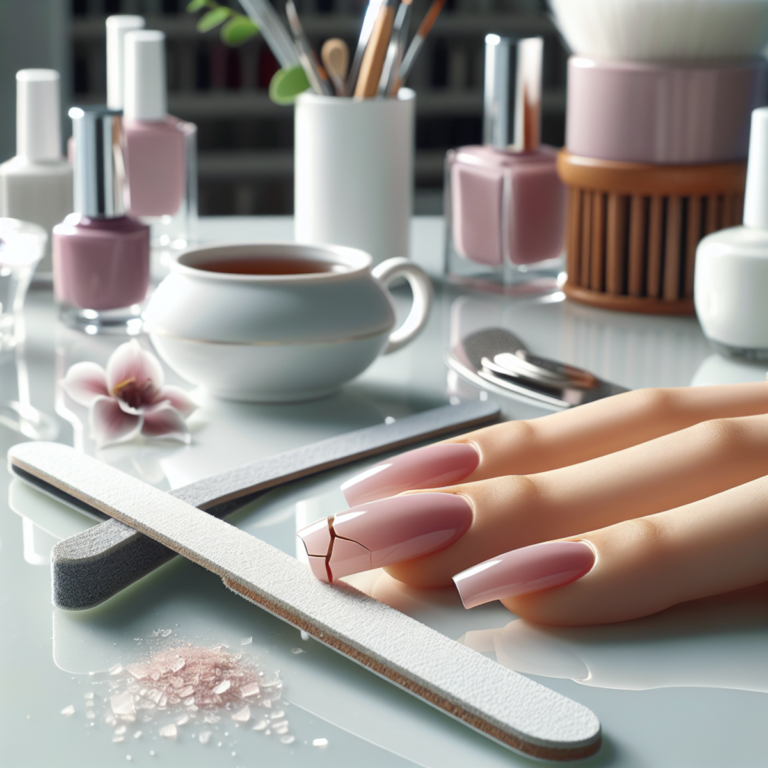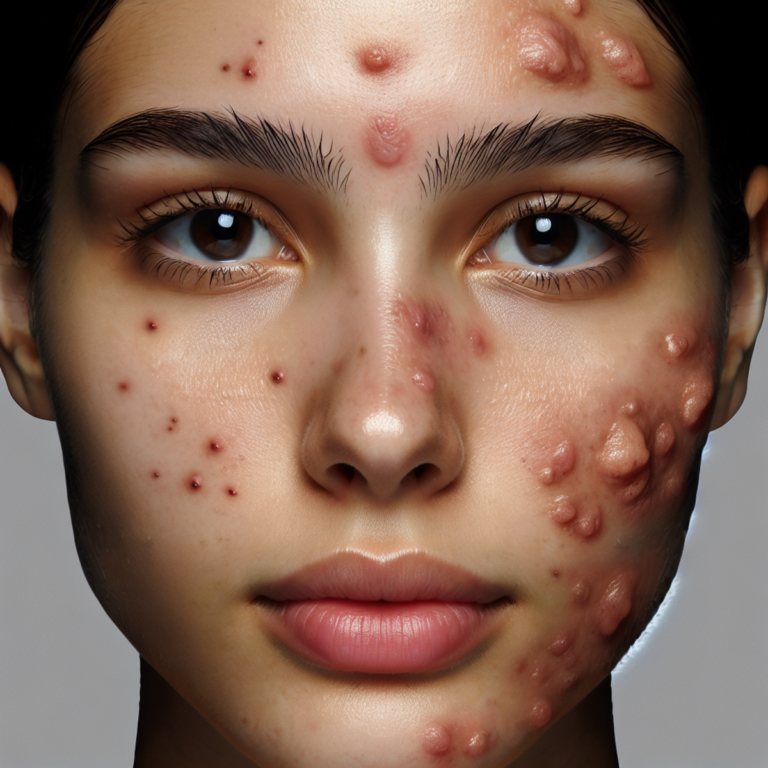Refine Your Routine with 40+ Expert Skin Care Tips

Introduction
When it comes to skincare, refining your routine and incorporating expert tips can make a world of difference in achieving healthy and radiant skin. Your skin deserves the best care possible, and by following a consistent skincare routine, you can effectively address specific concerns and maintain optimal skin health.
Importance of a Consistent Skin Care Routine
Maintaining a consistent skincare routine is crucial for several reasons:
- Healthy Skin: A regular skincare routine helps keep your skin healthy by removing impurities, replenishing moisture, and protecting it from environmental stressors.
- Prevention: Consistent care can help prevent common skin issues such as acne breakouts, premature aging, and hyperpigmentation.
- Long-Term Results: By sticking to a routine, you give your skin time to adjust to the products and treatments you use, allowing them to work more effectively over time.
Benefits of Following Expert Skin Care Tips
By incorporating expert skincare tips into your routine, you can take your skincare game to the next level. Here are some benefits:
- Customized Approach: Expert tips help you understand your skin’s unique needs and develop a tailored routine that addresses specific concerns effectively.
- Effective Products: Experts have extensive knowledge about various skincare products and ingredients. Following their advice ensures that you choose products that are suitable for your skin type and deliver desired results.
- Improved Results: Expert tips often include advanced techniques and strategies that maximize the effectiveness of skincare products. By following these tips, you can enhance the efficacy of your routine and achieve better results.
- Long-Term Skin Health: Experts provide guidance on maintaining long-term skin health by focusing on preventive measures and lifestyle choices that promote overall well-being.
Remember, everyone’s skin is different, so what works for one person may not work for another. It’s essential to experiment with different tips and adapt them to fit your individual needs. With that in mind, let’s delve into the world of skincare and explore expert tips for refining your routine and achieving the healthy skin you deserve.
Understanding Your Skin Type
The first step to achieving healthy and radiant skin is understanding your skin type. This knowledge forms the foundation for building an effective skincare routine tailored to your specific needs.
Importance of Knowing Your Skin Type
Understanding your skin type is crucial because different skin types have varying needs and react differently to skincare products. By identifying your skin type, you can select the most suitable products and treatments, leading to better results and fewer adverse reactions.
Exploring Different Skin Types
There are five primary skin types: normal, dry, oily, combination, and sensitive. Each type has distinct characteristics that require targeted care. For example:
- Normal skin is well-balanced, neither too oily nor too dry.
- Dry skin often feels tight and may appear flaky or rough.
- Oily skin is prone to shine and may be more susceptible to acne.
- Combination skin typically has an oily T-zone (forehead, nose, and chin) and drier cheeks.
- Sensitive skin is easily irritated and may react negatively to certain products or environmental factors.
Methods to Determine Your Own Skin Type
- Visual Examination: Observe how your skin feels throughout the day. Does it become oily or shiny? Does it feel tight or itchy?
- Blotting Paper Test: Gently dab a blotting paper on different areas of your face. Oily areas will leave visible oil on the paper.
- Skin Reaction: Pay attention to how your skin responds to specific products. If a product causes redness, itching, or breakouts, it can indicate sensitivity or allergy.
- Consultation with a Dermatologist: For a professional assessment, consider consulting a dermatologist who can analyze your skin type using advanced techniques.
By understanding your skin type through these methods, you can make informed decisions when selecting skincare products and customizing a routine that caters to your unique needs.
Understanding your skin type lays the groundwork for addressing common concerns effectively, which we’ll delve into in the next section.
Building a Basic Skin Care Routine for Optimal Health
When it comes to achieving healthy and glowing skin, a basic skin care routine forms the foundation for optimal results. By incorporating essential steps into your daily regimen, you can effectively maintain the health and appearance of your skin.
The Foundation: Cleansing, Toning, and Moisturizing Steps in a Daily Routine
1. Cleansing
The first step in any basic skin care routine is cleansing. This crucial step helps to remove dirt, oil, and impurities that accumulate on the skin throughout the day. It’s important to choose a gentle cleanser that suits your skin type. For example, those with dry skin may benefit from a hydrating cleanser, while individuals with oily skin may prefer a foaming or gel-based cleanser.
2. Toning
After cleansing, toning helps to balance the skin’s pH levels and remove any remaining traces of dirt or makeup. Toners can also provide hydration and prepare the skin to better absorb subsequent products. Look for alcohol-free toners with soothing ingredients such as rose water or chamomile for a calming effect on the skin.
3. Moisturizing
The final step in a basic skin care routine is moisturizing. Regardless of your skin type, moisturizing is essential for maintaining healthy and hydrated skin. Choose a moisturizer that addresses your specific needs, whether it’s providing lightweight hydration for oily skin or intense moisture for dry skin. Additionally, consider using a moisturizer with added benefits such as SPF for sun protection or anti-aging properties.
Recommended Products for a Basic Routine
When selecting products for your basic skin care routine, it’s important to choose high-quality formulations that cater to your individual needs. Here are some recommended products based on different skin types:
- Dry Skin: Look for creamy or oil-based cleansers that provide hydration without stripping the skin of its natural oils. For toners, opt for alcohol-free formulas with hydrating ingredients like hyaluronic acid. When it comes to moisturizers, choose rich creams or ointments that lock in moisture and prevent water loss from the skin.
- Oily Skin: Foaming or gel-based cleansers are ideal for oily skin types as they help to remove excess oil and impurities without over-drying the skin. Consider using toners that contain ingredients like witch hazel or salicylic acid to control oil production and minimize pores. Lightweight, non-comedogenic moisturizers are best suited for oily skin as they provide hydration without clogging pores.
- Combination Skin: For combination skin, opt for gentle foaming cleansers that effectively cleanse without causing imbalance. Toners with gentle exfoliating properties can help manage oiliness in the T-zone while providing hydration to drier areas. Choose lightweight moisturizers that offer balanced hydration without exacerbating oiliness in the T-zone.
By establishing a basic daily routine that includes cleansing, toning, and moisturizing tailored to your specific skin type, you can lay the groundwork for healthier and more radiant-looking skin. If you want to know more about the order of applying different skincare products, this [infographic](https://www.dermstore.com/blog/in-what-order
Addressing Common Skin Concerns Effectively
When it comes to skincare, addressing common skin concerns is a top priority for many people. Whether you’re dealing with acne, signs of aging, or hyperpigmentation, finding effective solutions is essential. In this section, we’ll explore these common skin concerns and provide expert tips on how to address them effectively.
Understanding and Treating Acne Issues
Acne is a common skin concern that affects people of all ages. It occurs when the pores become clogged with oil, dead skin cells, and bacteria. Understanding the causes of acne can help you develop an effective treatment plan. Here are some expert tips:
- Keep your skin clean: Cleansing your face twice a day with a gentle cleanser can help remove excess oil and prevent clogged pores.
- Avoid harsh products: Harsh cleansers and exfoliants can strip away the skin’s natural oils, leading to increased oil production and more breakouts. Opt for gentle products instead.
- Use non-comedogenic products: Non-comedogenic products are specifically formulated not to clog pores. Look for this label when choosing skincare products.
- Don’t pop your pimples: Popping pimples can lead to scarring and further inflammation. Instead, apply a spot treatment containing ingredients like benzoyl peroxide or salicylic acid.
- Consider professional treatments: If over-the-counter treatments aren’t effective, you may want to consult a dermatologist who can recommend prescription medications or procedures such as chemical peels or laser therapy.
Dealing with the Signs of Aging: Anti-Aging Skincare Methods
As we age, our skin undergoes various changes, including the appearance of fine lines, wrinkles, and loss of elasticity. While aging is a natural process, there are steps you can take to minimize its effects on your skin. Here are some expert tips:
- Protect your skin from the sun: Sun exposure is one of the leading causes of premature aging. Always wear sunscreen with at least SPF 30, even on cloudy days.
- Moisturize regularly: Dry skin can accentuate the appearance of wrinkles. Use a moisturizer that contains ingredients like hyaluronic acid or ceramides to keep your skin hydrated and plump.
- Incorporate retinoids into your routine: Retinoids, such as retinol or prescription-strength tretinoin, can help improve the appearance of fine lines and wrinkles over time. Start with a low concentration and gradually increase as tolerated.
- Consider collagen-boosting treatments: Procedures like microneedling or laser resurfacing can stimulate collagen production, improving the texture and firmness of your skin.
- Don’t forget about your neck and hands: The neck and hands are often overlooked but can show signs of aging as well. Extend your skincare routine to these areas for a more comprehensive approach.
Tips for Managing Hyperpigmentation for a More Even Skin Tone
Hyperpigmentation refers to dark spots or patches on the skin caused by an overproduction of melanin. It can be triggered by sun exposure, hormonal changes, acne scars, or skin injuries. If you’re dealing with hyperpigmentation, try these expert tips:
- Wear sunscreen religiously: Sunscreen is crucial in preventing further darkening of hyperpigmented areas. Look for broad-spectrum protection and reapply every two hours.
- Use brightening ingredients: Skincare products containing ingredients like vitamin C, niacinamide, or kojic acid can help fade hyperpigmentation over time.
- Consider chemical peels: Chemical peels exfoliate the top layers of the skin, reducing the appearance of hyperpigmentation. Start with a gentle peel and gradually increase the strength if needed.
- Try targeted treatments: Spot treatments containing ingredients like hydroquinone or azelaic acid can be applied directly to dark spots for more focused treatment.
- Be patient: Hyperpigmentation can take time to fade, so consistency is key. Stick to your skincare routine and give it time to work its magic.
By understanding and addressing common skin concerns effectively, you can achieve healthier and more radiant skin. Remember, everyone’s skin is unique, so what works for one person may not work for another. Be patient, experiment with different products and techniques, and consult a dermatologist if needed. With the right approach, you can refine your skincare routine and achieve the results you desire.
Specialized Care: Skincare Tips for Men
When it comes to skincare, men often have unique needs and concerns that differ from those of women. Understanding these differences and tailoring a skincare routine accordingly can lead to healthier, more vibrant skin.
Unique Aspects of Men’s Skincare Routines
Men’s skin tends to be thicker and oilier than women’s due to higher testosterone levels. This can lead to increased sebum production, making men more prone to issues such as acne and enlarged pores. Additionally, daily shaving can cause irritation and sensitivity, requiring specific attention in a skincare regimen.
Shaving Tips:
- Use a sharp razor to minimize irritation and ingrown hairs.
- Apply a pre-shave oil to soften the beard and protect the skin.
- Follow up with a soothing post-shave balm to calm any redness or inflammation.
Recommended Products and Techniques for Male Grooming Needs
- Cleanser: Look for a gentle cleanser that effectively removes oil and impurities without stripping the skin. Consider products with ingredients like salicylic acid or tea tree oil to address acne-prone skin.
- Moisturizer: Opt for a lightweight, non-greasy moisturizer that provides hydration without clogging pores. Products containing hyaluronic acid or glycerin can help maintain moisture balance without feeling heavy on the skin.
- Sunscreen: Protecting the skin from sun damage is crucial. Choose a broad-spectrum sunscreen with an SPF of at least 30 and apply it daily, especially when spending extended time outdoors.
- Anti-Aging Products: Men can benefit from incorporating anti-aging products into their routine, such as serums with vitamin C or retinol to address fine lines and wrinkles.
- Beard Care: For those with facial hair, using a beard oil or balm can help keep the skin underneath moisturized and prevent itchiness.
- Professional Treatments: Consider seeking professional treatments tailored to men’s skincare needs, such as deep-cleansing facials or laser hair removal for areas prone to ingrown hairs.
By understanding the unique aspects of men’s skincare routines and selecting products tailored to these needs, men can establish an effective skincare regimen that promotes healthy, clear skin while addressing specific concerns such as razor irritation and excess oil production.
For a comprehensive guide on the best shaving routine for men, you may find this resource helpful in further refining your grooming routine. Additionally, if you’re looking for a simple skincare routine that covers all the basics, this article provides some great insights to get you started.
Harnessing the Power of Nature: Home Remedies for Healthy Skin
Nature has amazing healing properties, especially when it comes to skincare. There are many home remedies that can do wonders for your skin. Using natural ingredients in your skincare routine can be a gentle and affordable way to address common skin issues. However, it’s important to know the pros and cons of using home remedies for skincare as well as evidence-based skincare practices. In this article, we’ll explore the world of natural skincare solutions, discuss the benefits and limitations of using home remedies, and share some DIY recipes for common skin concerns.
Benefits and Limitations of Using Home Remedies in Your Skincare Practice
Benefits:
- Cost-effective: Home remedies often use ingredients that you already have in your kitchen or pantry, making them cheaper than commercial skincare products.
- Gentle on the skin: Natural ingredients are usually milder and less likely to cause irritation or allergic reactions compared to harsh chemicals in some skincare products.
- Customizable: With home remedies, you can tailor your skincare routine to suit your specific needs by choosing the ingredients yourself.
Limitations:
- Limited scientific evidence: While many home remedies have been used for centuries, their effectiveness is often based on personal experiences rather than scientific studies.
- Results may vary: The strength and effectiveness of natural ingredients can differ depending on where they come from, how they’re prepared, and what type of skin you have.
- Slower results: Home remedies might take longer to show visible improvements compared to commercial products that contain powerful active ingredients.
DIY Recipes for Common Skin Concerns
1. Honey and Yogurt Face Mask (Moisturizing):
- Combine 1 tablespoon of raw honey with 2 tablespoons of plain yogurt.
- Apply the mixture to clean skin and leave it on for 15-20 minutes.
- Rinse off with lukewarm water.
Honey helps retain moisture in the skin while yogurt provides soothing and nourishing properties.
2. Green Tea Face Mask (Soothing and Antioxidant-rich):
- Steep a green tea bag in hot water for 3-5 minutes.
- Allow the tea to cool completely.
- Transfer the tea to a spray bottle or apply it with a cotton pad as a toner.
Green tea is packed with antioxidants that can help calm inflammation and protect the skin from damage caused by free radicals.
3. Oatmeal and Honey Scrub (Exfoliating):
- Mix 1 tablespoon of ground oats with 1 tablespoon of honey.
- Gently massage the mixture onto damp skin in circular motions.
- Rinse off with warm water.
Oats provide gentle exfoliation, while honey moisturizes and soothes the skin.
4. Aloe Vera Gel (Soothing and Healing):
- Extract fresh aloe vera gel from an aloe leaf.
- Apply the gel directly to
Equip Yourself with the Right Tools: Must-Have Skin Care Supplies
When it comes to maintaining a healthy and glowing complexion, having the right skincare supplies is essential. From basic essentials to specialized tools, equipping yourself with the right products can make a significant difference in your skincare routine. Here are some key points to consider when assembling your arsenal of skincare supplies:
Essential Supplies for a Well-Rounded Skin Care Routine
- Cleanser: A gentle and effective cleanser suited for your skin type is crucial for removing impurities and preparing the skin for further treatment.
- Toner: Toning helps to balance the skin’s pH levels and remove any remaining traces of dirt or makeup after cleansing.
- Moisturizer: Hydration is key to maintaining healthy skin, so finding a moisturizer that suits your skin type is essential.
- Sunscreen: Protecting your skin from harmful UV rays is vital in preventing premature aging and reducing the risk of skin cancer.
- Exfoliator: Regular exfoliation helps to slough off dead skin cells, revealing a smoother and brighter complexion.
Overview of At-Home and Medical Tools for Skincare
In addition to basic skincare products, there are various tools and devices that can enhance your skincare routine:
- Facial Cleansing Brush: These electric brushes help deep-clean pores, remove makeup residue, and exfoliate the skin.
- Jade Roller: This traditional Chinese beauty tool is used to massage the face, reduce puffiness, and promote lymphatic drainage.
- LED Light Therapy Devices: These devices use different wavelengths of light to address various skin concerns such as acne, inflammation, and signs of aging.
- Microcurrent Devices: These tools use low-level electrical currents to tone facial muscles and improve overall skin texture.
Recommended Brands and Products
When selecting skincare supplies, it’s important to choose reputable brands known for their quality and efficacy. Some popular brands known for their skincare supplies include:
- CeraVe: Known for its gentle yet effective cleansers, moisturizers, and sunscreen.
- Paula’s Choice: Offers a wide range of skincare products including exfoliants, serums, and treatments targeted at specific skin concerns.
- FOREO: Recognized for its innovative facial cleansing brushes and devices designed to enhance skincare routines.
- La Roche-Posay: Offers a variety of products suitable for sensitive skin, including sunscreens, cleansers, and moisturizers with dermatologist-recommended formulations.
Equipping yourself with high-quality skincare supplies tailored to your individual needs can elevate your skincare routine and contribute to achieving healthy, radiant skin.
Making Informed Choices for Your Skin Needs
When it comes to taking care of your skin, making informed choices is crucial for achieving the best results. With countless skincare products available in the market, it’s essential to be selective and consider various factors before incorporating them into your routine.
The Importance of Being Selective in Your Skincare Product Choices
Selecting the right skincare products can significantly impact the health and appearance of your skin. It’s important to understand that not all products are suitable for every skin type. By being selective, you can avoid potential irritants or allergens that may harm your skin.
Key Factors to Consider When Evaluating Skincare Products
When evaluating skincare products, several key factors should be taken into account:
- Skin Type Compatibility: Different products are formulated for specific skin types, such as dry, oily, combination, or sensitive skin. Understanding your skin type will help you choose products tailored to your needs.
- Ingredients: Pay attention to the ingredients used in the products. Look for beneficial components like hyaluronic acid, vitamin C, retinoids, and antioxidants known for their positive effects on the skin.
- Product Reviews: Researching and reading product reviews can provide valuable insights into the effectiveness of a particular skincare product. Real experiences from other users can help you make an informed decision.
- Brand Reputation: Consider the reputation of the brand producing the skincare product. Established and reputable brands often invest in research and quality ingredients.
- Clinical Evidence: Look for products supported by clinical studies or dermatologist recommendations. Scientific evidence can validate the claims made by skincare brands about their products’ efficacy.
Tips for Reading Product Labels and Understanding Ingredients Lists
Reading product labels and understanding ingredient lists can be overwhelming due to scientific names and complex compounds. Here are some tips to help decode skincare product labels:
- Priority Ingredients: Ingredient lists are typically arranged in descending order of concentration. Focus on the first few ingredients as they make up the majority of the product.
- Allergens and Irritants: Be aware of any ingredients that you are allergic to or have previously caused irritation. Avoid products containing such ingredients.
- Fragrances: Fragrances are common irritants for many individuals. If you have sensitive skin, opt for fragrance-free or hypoallergenic products.
- Expiration Dates: Check for expiration dates to ensure product freshness and effectiveness.
By understanding how to interpret product labels and ingredient lists, you can make well-informed decisions when selecting skincare products tailored to your specific needs.
Conclusion
After learning from a wide range of skin care experts, it’s time to take action and improve your skin care routine for a healthier, glowing complexion. Remember, getting perfect skin doesn’t happen overnight; it takes regularity, commitment, and the right knowledge.
Now that you have all these expert tips for different skin issues and types, here’s what you should do:
- Implementing Expert Tips: Choose the advice that suits your specific needs and incorporate it into your daily routine. Whether you’re dealing with acne, aging signs, or dark spots, using these expert tips can make a big difference.
- Customizing Your Routine: Everyone’s skin is different, so it’s important to tailor your skin care routine based on expert tips. Take the time to understand your skin type, try out different products and techniques, and adjust your routine as necessary.
- Embracing Simplicity: While it’s great to learn from various expert tips, remember that simplicity is key in your skin care routine. Don’t overload your regimen with too many products or steps – stick to the basics of cleansing, toning, moisturizing, and using targeted treatments when needed.
- Seeking Professional Guidance: Don’t hesitate to seek help from professionals if you have persistent or complicated skin concerns. Dermatologists and skincare specialists can offer personalized advice tailored to your specific needs.
- Consistency is Key: The most important aspect of any effective skin care routine is consistency. It’s not enough to just follow expert tips every now and then; you need to establish sustainable habits that become second nature over time.
- Stay Informed and Adaptable: While refining your skin care routine with expert tips, stay updated on new developments in skincare science and trends. Be willing to adapt your routine based on new information while staying true to the core principles of healthy skincare practices.
By following these steps and staying patient and persistent, you can refine your routine for healthier, more radiant skin. Remember that achieving flawless skin is a journey, but every effort you put into improving your routine will bring you closer to your goals.










